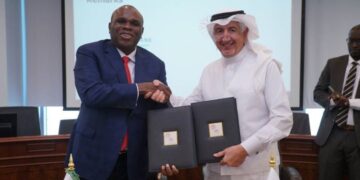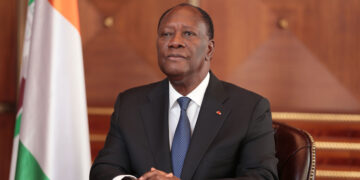Ghana has been removed from the European Union’s (EU) list of high risk third countries with strategic deficiencies in their Anti-Money Laundering and Countering the Financing of Terrorism (AML/CFT) regimes.
This was after Ghana had strengthened the effectiveness of its AML/CFT regime by addressing related technical deficiencies including strengthening the legal and regulatory framework to meet the commitments in the FATF action plan, with a view of removing strategic deficiencies identified under the Article 9 of 4th Anti-money Laundering Directives, said a statement issued by the Ministry of Finance in Accra yesterday.
It would be recalled that on 18th October, 2020, the European Union in a press release added Ghana to their list of high-risk jurisdictions with strategic deficiencies in their AML/CFT regimes because Ghana was on the Fatf Grey List.
Ghana’s removal from the list was contained in a letter dated on 07 January 2022, signed by Commissioner Mairead McGuiness, in charge of Financial Services, Financial Stability and Capital markets Union.
A section of the letter stated, “I take this opportunity to congratulate Ghana for the actions taken and commend your country for its continuous efforts in strengthening its framework for the combat against money laundering and terrorist financing. I am looking forward to a fruitful and continuous cooperation on these aspects.”
In commending Ghana, the Head of the European Union Delegation to Ghana, Irchad Razaaly in his introductory letter also wrote “I join the Commissioner in congratulating you and Ghana for the efforts undertaken to this effect”. By dint of hard work and political commitment, Ghana addressed all the action items in the action plan even ahead of schedule.
The Minister for Finance, and Chairman of GIABA, Ken Ofori-Atta, in his congratulatory remarks said “the team – Ministry of Finance, Bank of Ghana, Financial Intelligence Centre, Registrar General’s Department, Economic and Organised Crime Office, Finance Committee of Parliament, National Intelligence Bureau, Ministry of Gender, Children and Social Protection, Securities and Exchange Commission, National Insurance Commission, and all stakeholder groups worked hard and with patriotic fervor to register this successful achievement, the first of such delisting in West Africa”. This is an example of what we can accomplish when we work together towards addressing systemic issues that confront our country.
For us in Ghana, and as headquarters of the AfCFTA we are guided by a vision of establishing the country as the financial services destination for the Africa Region, and we will work diligently to achieve this.
















































